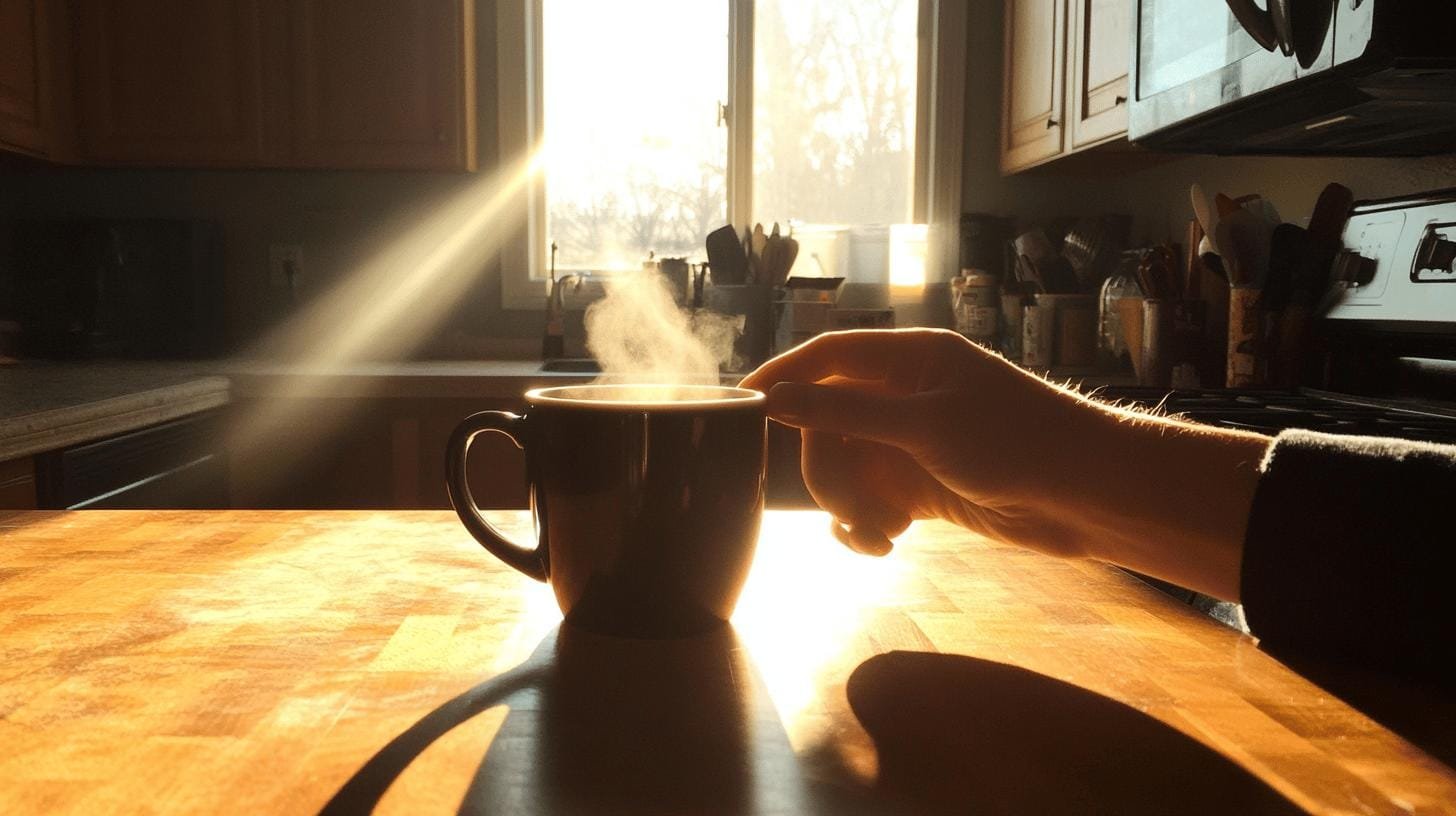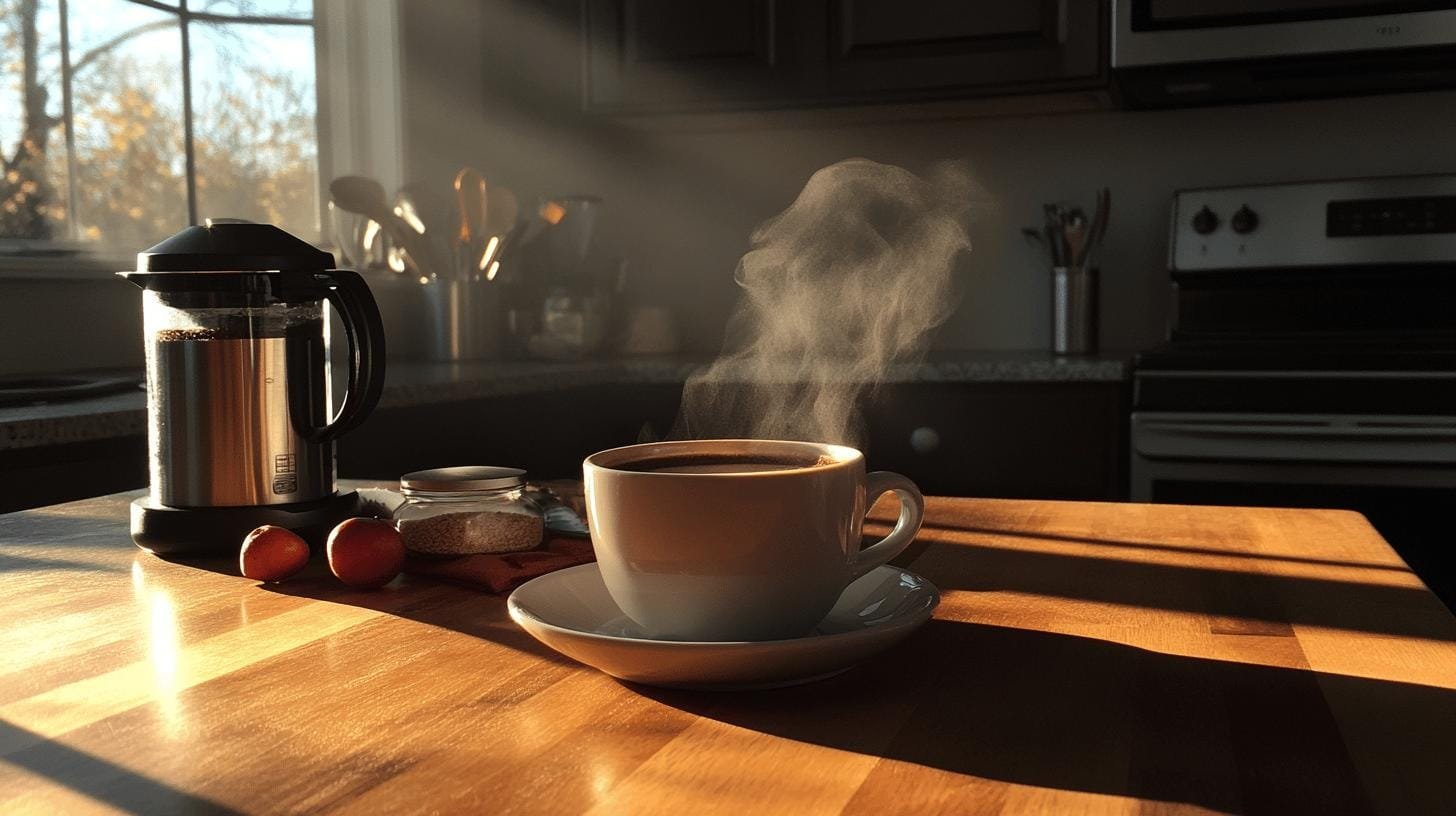
6 Ways Specialty Coffee Brands Build Loyalty and Stand Out
Discover how top specialty coffee brands create lasting loyalty through storytelling, sourcing, and community connection. Real tips from 6 industry experts.

Can your morning cup of coffee influence your cholesterol levels? The connection between coffee and cholesterol test is more intricate than many realize. While filtered coffee is often lauded for its benefits, unfiltered brews can amplify cholesterol levels due to compounds such as cafestol and kahweol.
Understanding these distinctions is crucial, especially for those mindful of heart health. This article delves into how various coffee types impact cholesterol, offers scientific insights, and provides expert recommendations for maintaining healthy cholesterol levels while enjoying your beloved brew.
Coffee is closely connected to cholesterol levels. Research shows it can increase cholesterol by almost 12 points, especially in those drinking five or more cups a day. The effect varies depending on the type of coffee and individual reactions.
Studies reveal unfiltered coffees like French press and Turkish brews have high levels of cafestol and kahweol, raising LDL cholesterol. Filtered coffee captures these compounds, making it a safer option for those watching their cholesterol. Choosing filtered coffee can help reduce health risks.
Experts suggest managing cholesterol by moderating coffee intake. Limit unfiltered coffee to one cup per day, with more freedom for filtered types. Be aware of high-fat dairy or plant-based creams as they can impact cholesterol further. These measures support a heart-healthy lifestyle while enjoying coffee’s flavor.

Coffee, especially black coffee, is believed to have minimal impact on cholesterol test results. The question “does coffee affect cholesterol test results?” is often answered affirmatively but indicates only a slight change. This modest impact allows some doctors to permit black coffee, even when fasting before a test.
Testing protocols differ by region, with some areas allowing non-fasting tests. Danish studies show fasting or not doesn’t significantly alter results. Despite this, patients should continue with their doctor’s specific recommendations for the most reliable outcomes.
Fasting is vital when preparing for a cholesterol test, especially for triglyceride levels. Typically, fasting 8 to 12 hours before a test gives accurate baseline readings. It prevents recent food from affecting cholesterol and triglyceride levels. Water is usually allowed, but caloric drinks and foods can change results unpredictably. Black coffee is often acceptable since it has few calories and little effect on cholesterol or triglycerides. Yet, follow your healthcare provider’s specific instructions, as individual health needs may require different fasting tips.
Some exceptions to fasting rules exist. People with conditions like brittle diabetes or pregnancy may need adjusted fasting instructions. Such cases may allow some calories to keep blood sugar or nutrition stable. Always consult with a healthcare provider for tailored fasting strategies.
Following medical guidance accurately ensures reliable cholesterol test results. Each patient receives personalized advice based on health status and risk factors. By following these tips, patients can ensure proper cholesterol assessment, aiding in effective health management.

Choosing the right coffee type is vital for managing cholesterol. What is best for cholesterol management? Filtered coffee is preferred as it removes cafestol and kahweol, which elevate LDL cholesterol. Unfiltered coffee contains more of these compounds, so moderation is important.
To maintain heart health while enjoying coffee, practice moderation and consider careful preparation.
By following these strategies, coffee remains a delightful part of a heart-smart routine without risking health.
Understanding the relationship between coffee consumption and cholesterol levels is crucial for making informed dietary choices.
While unfiltered coffee can raise cholesterol due to cafestol and kahweol, opting for filtered alternatives can mitigate these effects.
For those undergoing a cholesterol test, it’s advisable to be mindful of coffee intake and communicate with healthcare providers if consumption occurs before testing.
By selecting appropriate coffee types, individuals can enjoy their favorite beverage while managing cholesterol effectively.
Embracing a balanced coffee routine supports heart health, allowing coffee enthusiasts to savor their brew with peace of mind.
Filtered coffee is better for cholesterol management, as it removes cholesterol-raising compounds such as cafestol and kahweol. Limiting unfiltered coffee to one cup daily is generally safe for cholesterol levels.
Drinking black coffee before a cholesterol test typically does not significantly affect results, altering total cholesterol by only a few mg/dL. Reporting coffee intake to your doctor is important for accurate interpretation.
Black coffee is generally neutral for cholesterol when consumed in moderate amounts without high-fat additives. It provides minimal impact on LDL levels, making it a preferable choice for those managing cholesterol.
Avoid consuming unfiltered coffee, high-fat foods, alcohol, and tobacco to ensure accurate cholesterol test results. Follow specific fasting instructions provided by healthcare professionals prior to testing.
Coffee generally does not significantly affect HDL cholesterol levels. However, the consumption of unfiltered coffee has been linked to a slight increase in LDL cholesterol, necessitating careful selection of coffee type.

Discover how top specialty coffee brands create lasting loyalty through storytelling, sourcing, and community connection. Real tips from 6 industry experts.

Discover the ultimate showdown between two beloved coffee brewing methods: the French press and Chemex. Explore how each technique caters to distinct palates, with the French press delivering bold flavors and the Chemex presenting a bright, clean taste.

Unlock the secrets to brewing the perfect cup of coffee with our comprehensive guide on using a coffee scale. Discover how precise measurements enhance flavor and consistency while eliminating bitterness.

Discover how water temperature plays a vital role in brewing the perfect cup of coffee. This article delves into the ideal temperature range of 195°F to 205°F for optimal flavor extraction, enhancing the enjoyment of high-quality beans.

Discover the world of curated specialty coffee bundles, perfect for enthusiasts seeking quality and craftsmanship. This article explores the benefits of ethically sourced, small-batch beans from brands like Equipoise Coffee, offering diverse flavor profiles that elevate your brewing experience.

Discover the art of manual brewing to elevate your coffee experience! This article explores various techniques like pour-over, French press, and AeroPress, revealing how they enhance flavor and your connection to every cup.

Discover how to balance productivity and rest with the perfect cup of coffee. This article explores the art of brewing high-quality coffee to enhance your work routine while promoting mindful breaks.

Transform your morning coffee ritual into a mindful experience! This article explores the importance of slowing down to appreciate high-quality beans, ethical sourcing, and small-batch roasting.

Discover the world of specialty grade coffee and what sets it apart for true enthusiasts. This article delves into the strict standards, exceptional flavors, and unique origins that define high-quality brews.